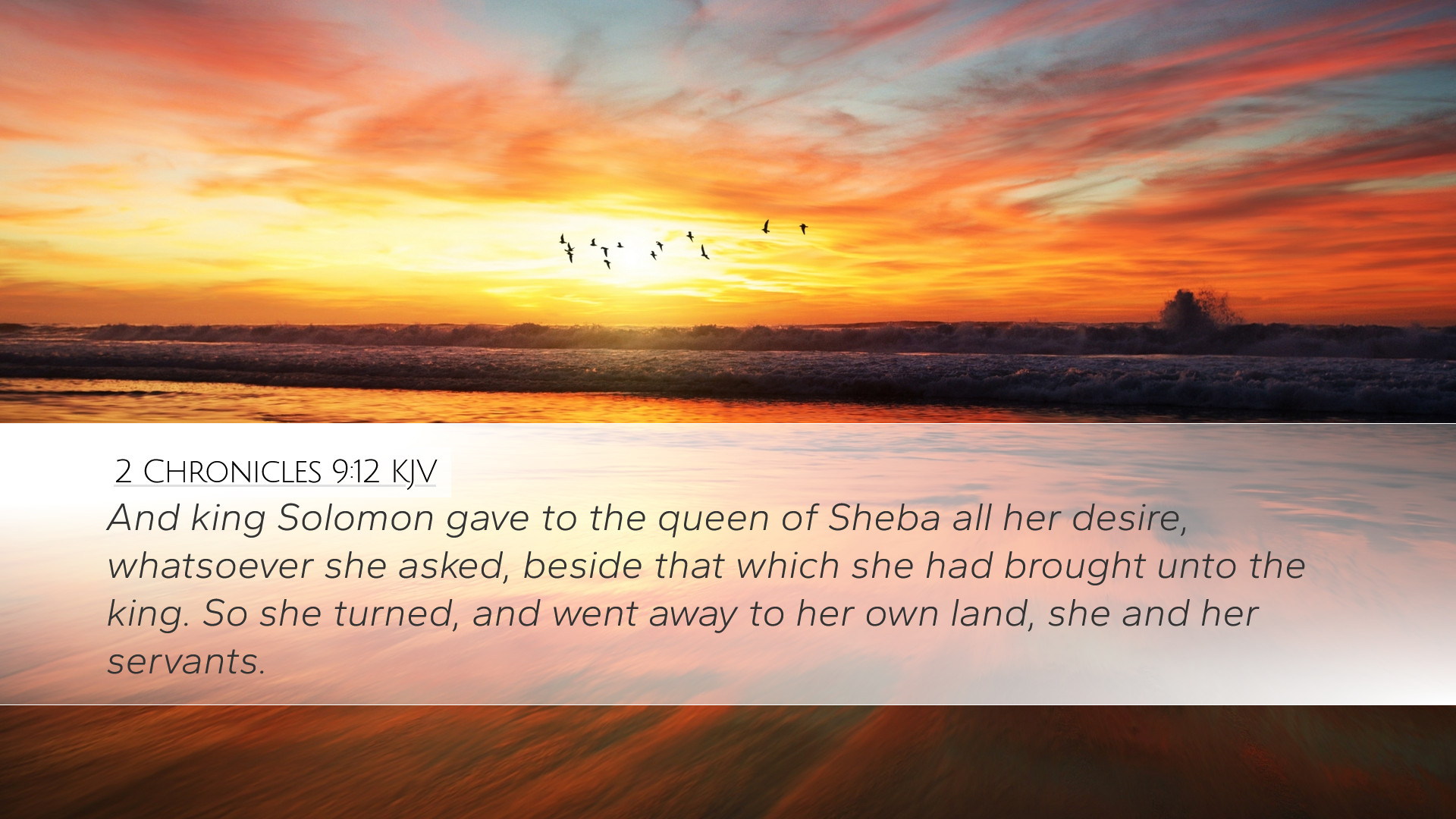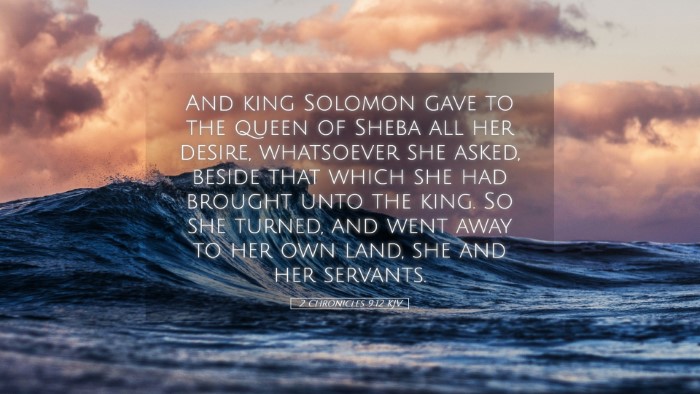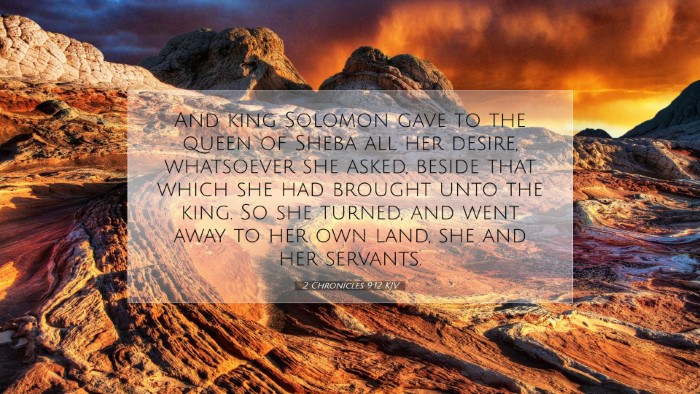Commentary on 2 Chronicles 9:12
Bible Verse: "And King Solomon gave to the queen of Sheba all her desire, whatsoever she asked, beside that which Solomon gave her of his royal bounty. So she turned, and went away to her own land, with her servants."
Introduction
This verse encapsulates a pivotal moment in King Solomon's reign, highlighting the extraordinary wealth and wisdom that characterized his rule. The encounter between Solomon and the Queen of Sheba serves as a testament to the far-reaching influence of Solomon's rule and the prosperity that God bestowed upon him. Commentaries from esteemed theologians such as Matthew Henry, Albert Barnes, and Adam Clarke provide rich insights into the implications of this passage.
Theological Context
The narrative in 2 Chronicles 9:12 falls within a broader context of kingship and divine favor. Solomon's reign is often viewed as a golden age in Israel's history, marked by unprecedented wealth and wisdom. This encounter illustrates the fulfillment of the promises made to Solomon and the ways in which his gifts attracted admiration and recognition from outside his kingdom.
Matthew Henry's Insights
Matthew Henry emphasizes the significance of Solomon's generous spirit. He notes that Solomon's actions not only fulfilled the requests of the Queen of Sheba but also demonstrated his understanding of the importance of fostering international relations. By showcasing his wealth and wisdom, Solomon established a reputation that extended beyond Israel's borders.
- Generosity and Diplomacy: Henry highlights that Solomon's hospitality was a strategic diplomatic gesture, aimed at solidifying alliances and fostering goodwill with neighboring nations.
- Divine Provision: According to Henry, the gifts bestowed by Solomon were indicative of the divine blessing upon his reign, aligning with the prophecy of abundant prosperity as a result of his wisdom.
Albert Barnes' Commentary
Albert Barnes focuses on the implications of the Queen of Sheba’s visit as an acknowledgment of Solomon's wisdom and wealth. He points out that her inquiries stemmed from a desire to understand the source of Solomon's extraordinary capabilities.
- A Test of Wisdom: Barnes suggests that the queen’s visit was not merely for material gain but was also a quest for wisdom. She sought to test the reputation of Solomon and to discern if it had merit.
- Royal Bounty: Barnes elaborates on the phrase "royal bounty," indicating that the gifts were not only abundant but also significant, reflecting the splendor of Solomon’s court and the divine favor upon him.
Adam Clarke's Analysis
Adam Clarke provides a nuanced perspective on the nature of the gifts given to the Queen of Sheba, indicating that they were not merely material wealth but also expressed an appreciation for her presence and respect for her status.
- Symbolic of Mutual Respect: Clarke notes that Solomon’s gifts symbolized the mutual respect between leaders, establishing a precedent for interaction among monarchs.
- Significance of Departure: Clarke emphasizes the queen’s departure with her attendants, suggesting that the journey back to her land was filled with newfound understanding and reverence for Solomon’s wisdom.
Application for Today
For pastors, students, theologians, and Bible scholars, the encounter between Solomon and the Queen of Sheba in 2 Chronicles 9:12 serves as a profound illustration of how wisdom and generosity can transcend cultural boundaries. This passage invites reflection on how leaders today can harness their gifts to foster relationships built on respect and mutual admiration.
- Leadership and Generosity: Solomon's example challenges contemporary leaders to consider how they wield their resources to not only bless their immediate community but also engage positively with the wider world.
- Wisdom in Relationships: The passage encourages a pursuit of wisdom, akin to that of Solomon, as essential in building and maintaining relationships that can lead to mutually beneficial outcomes.
Conclusion
The account in 2 Chronicles 9:12 highlights King Solomon’s unparalleled generosity and wisdom, offering enduring lessons for leaders and believers alike. The reflections from Henry, Barnes, and Clarke underscore the importance of both material and spiritual blessings in fostering goodwill and understanding among nations and individuals. This passage not only celebrates Solomon's achievements but also serves as a timeless reminder of the impact of a wise and generous heart.


